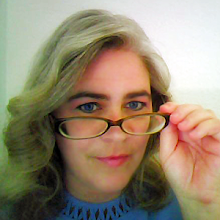 While we are on the subject of new writer mistakes, let me embarrass myself and admit that I had a problem with homophones. Homophones are a group of words that have the same pronunciation but are often spelled different and have different meanings. You can think of it as the difference between a ruby and a garnet. Rubies and garnets look the same, but one is a harder stone, often more clear and more rare. If you paid the price of a ruby for a garnet, you would not be too happy. The correct homophone is the ruby while the other is a garnet, which is not quite good enough.
While we are on the subject of new writer mistakes, let me embarrass myself and admit that I had a problem with homophones. Homophones are a group of words that have the same pronunciation but are often spelled different and have different meanings. You can think of it as the difference between a ruby and a garnet. Rubies and garnets look the same, but one is a harder stone, often more clear and more rare. If you paid the price of a ruby for a garnet, you would not be too happy. The correct homophone is the ruby while the other is a garnet, which is not quite good enough.The wrong homophones can be found in the work of novice writers, can slip past more advanced writers and can often irritate editors. The best way to avoid the mistake is to gather a list of homophones, adding more and more as time goes by, and to study them.
Below, I have listed four of the most common sets of homophones that I was guilty of confusing and that I encounter when proofreading for newer authors. The great thing about these four sets is that after you have studied the differences and the more you write and proofread your own work, these will no long be a problem for you.
Your, you're
Your is the possessive form of the word you.
Example for your: Is that your dog?
You're is the contraction of you are.
Example for you're: I think you're going to be late.
It's, its
Its is the possessive form of the word it. And like the word your above, it does not need an apostrophe.
Example for its: The dog wagged its tail.
It's is the contraction of either it is or it has. It is a contraction, therefore it needs the apostrophe.
Example for it's: It's cold outside.

Example for its: The dog wagged its tail.
It's is the contraction of either it is or it has. It is a contraction, therefore it needs the apostrophe.
Example for it's: It's cold outside.

There, their, and they're
Examples:
There: I don't want to go there.
Their: Their house is up for sale.
They're: They're going to have to move soon. (They're: contraction of they are.)

There: I don't want to go there.
Their: Their house is up for sale.
They're: They're going to have to move soon. (They're: contraction of they are.)

To, two, and two
To: They want to go to the store.
Two: She has two children.
Too: That is way too much ketchup for one hot dog. OR He likes candy too.
With the first three sets, I believe there is confusion because in most cases an apostrophe is used with a possessive.
Examples: The cat's eyes glow in the dark. I put Mark's jacket in the closet. I went into the restaurant's kitchen.
Naturally, we want to put an apostrophe on all possessives. I found it helpful to lump all the possessive pronouns together to look at. Mine, yours, his, hers, theirs, ours, its. Then I found it helpful when editing to stop at words like it's, you're, they're and asked myself if they still read correctly as it is, you are, and they are.
There are many homophones and I still mix some of them up. I have reduced the amount of mistakes by simply studying a list of homophones found at this website.
Two: She has two children.
Too: That is way too much ketchup for one hot dog. OR He likes candy too.
With the first three sets, I believe there is confusion because in most cases an apostrophe is used with a possessive.
Examples: The cat's eyes glow in the dark. I put Mark's jacket in the closet. I went into the restaurant's kitchen.
Naturally, we want to put an apostrophe on all possessives. I found it helpful to lump all the possessive pronouns together to look at. Mine, yours, his, hers, theirs, ours, its. Then I found it helpful when editing to stop at words like it's, you're, they're and asked myself if they still read correctly as it is, you are, and they are.
There are many homophones and I still mix some of them up. I have reduced the amount of mistakes by simply studying a list of homophones found at this website.
When I write a word that I know is a homophone and I am in doubt about which one to use, I simply google the word and read the definition.
What are some of the homophones that you mix up? Do you have any tricks, tips or websites on how to beat the homophone trap?
Next up, dialogue.










2 comments:
I'm glad you posted about this. These are definitely very common mistakes that I see in a lot of other writings.
LOL! My biggest mistake with words like these is now that I've become an author, I've forgotten how to say right. I'm constantly spelling out write instead! LOL! Which is sort of funny, when you consider I'm usually talking about the right way to write. LOL! Jenni
Post a Comment